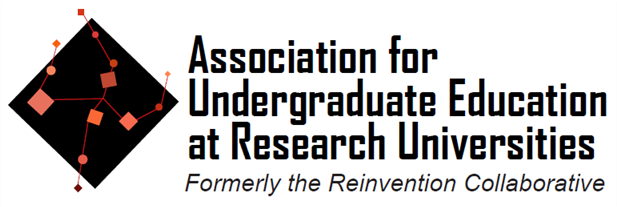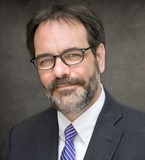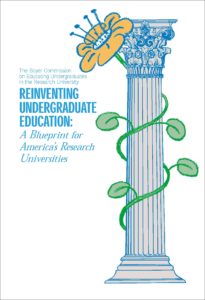
An association based at Colorado State University has launched a new commission chaired by some of the nation’s top higher education leaders to examine how to improve undergraduate education.
It’s a follow-up to the landmark 1998 report issued by the Boyer Commission on Educating Undergraduates in the Research University, which was convened by the Carnegie Foundation for the Advancement of Teaching. That report, “Reinventing Undergraduate Education: A Blueprint for America’s Research Universities,” featured a host of transformational recommendations in areas such as research-based learning, interdisciplinary education, information technology, capstone experiences, community building and faculty reward systems.
On Aug. 9, the Association for Undergraduate Education at Research Universities, formerly known as the Reinvention Collaborative and hosted by CSU since 2013, announced the formation of the “Boyer 2040 Commission.” That group has been charged with designing a “2040 Blueprint for Excellence & Equity in Undergraduate Education at U.S. Research Universities.” It is being co-chaired by Barbara Snyder, president of the Association of American Universities, and Peter McPherson, president of the Association of Public and Land-grant Universities. Together with their 14 fellow commissioners, Snyder and McPherson expect to issue a report in early 2022.
About UERU
The CSU-based association, known as UERU, has representatives from 85 universities, including the most recent additions of the University of North Carolina at Chapel Hill, Vanderbilt University, the University of Central Florida and Brown University. UERU was founded at the State University of New York at Stony Brook in 2000 to implement the recommendations of the original Boyer Commission’s report.

According to CSU Associate Provost Steve Dandaneau, UERU executive director, those recommendations changed how undergraduate students were viewed and taught in many ways.
“After that, it was no longer acceptable to imagine undergraduate students as cash cows that you bring onto campus, and whether they succeed or fail was up to them, sink or swim, survival of the fittest,” he said. “We don’t talk that way anymore. Now there is an understanding that all students deserve to be successful, they deserve to be supported and encouraged, and they’re important.”
Still, Dandaneau explained, more needs to be done because nationwide changes like increasing research-based learning and decreasing class sizes in first-year and capstone seminars, for instance, haven’t translated into significant improvements in retention or graduation rates. In addition, he said, other challenges have arisen in recent decades, like ensuring equity for the influx of first-generation, racially minoritized and limited-income students, and the economic obstacle of declining public funding for higher education and resulting increases in the cost of attendance.
Need for flexibility
Pointing to the COVID-19 pandemic as an example, Dandaneau said, students need to be prepared to deal with change.
“Students of today, looking ahead to their future, need to be flexible, adaptable, capable of coping with challenges and finding solutions, and that changes how we teach and think about our degree programs,” he said. “This commission will look at that big picture, a couple of decades hence. We know there is a lot in that timeframe that’s going to put responsibility on us as educators to do things differently, more effectively and more creatively.”
Members of the Boyer 2040 Commission
Barbara R. Snyder, President, AAU, co-chair
Peter McPherson, President, APLU, co-chair
Michael Crow, President, Arizona State University
Andrew Delbanco, President, Teagle Foundation
Roger Ferguson, former President, TIAA-CREF
Kathleen Fitzpatrick, Director of Digital Humanities, Michigan State University
Kevin Kruger, President and CEO, NASPA—Student Affairs Administrators in Higher Education
Gary May, Chancellor, University of California, Davis
Sarah Newman, Director of Art & Education at MetaLAB, Harvard University
Lynn Pasquerella, President, Association of American Colleges & Universities (AAC&U)
Deborah Santiago, Co-Founder and CEO, Excelencia in Education
Claude Steele, Lucie Stern Professor in the Social Sciences, Emeritus, Stanford University
Holden Thorp, Editor-in-Chief, Science
Eric Waldo, former Executive Director of Michelle Obama’s Reach Higher Initiative
Mary Wright, Associate Provost for Teaching & Learning, Brown University
Ex officio: Elizabeth Loizeaux (Boston University; Past President, UERU)
National higher education leaders have lauded the creation of the new commission.
“I know how proud and enthusiastic all the members of the original Commission on Educating Undergraduates in the Research University would be to learn of the outstanding new commission’s forthcoming work,” said former SUNY Stony Brook President Shirley Strum Kenny, who chaired the original Boyer Commission. “Thank you, thank you, for this timely endeavor.”

About the commission
The Boyer 2040 Commission is a diverse group of renowned leaders whose experience and expertise provide distinctive perspectives on undergraduate education at the nation’s 266 doctoral universities characterized by high and very high research activity, as defined by the Carnegie Classification. The commission’s first meeting was scheduled for Aug. 17.
“Research universities provide students excellent opportunities for lifelong success, yet rapid changes in our economy demand that we constantly reassess the need for new approaches to undergraduate education,” McPherson said. “We know a broad education in which students gain knowledge and experience in a wide array of disciplines while working in diverse teams will continue to be essential to preparing engaged citizens and successful professionals. This commission will play an instrumental role in envisioning how to achieve those aims to prepare graduates to thrive in a rapidly changing world.”
Snyder agreed.
“America’s leading research universities have made significant progress in improving the quality of undergraduate education since the original Boyer Report,” she said. “But the methods and forms of instruction have changed radically in the last 20 years – and it’s time to make recommendations for the next two decades. I’m proud to help lead that effort.”
Dandaneau noted that this effort is just one of many collaborations that CSU undertakes as a national leader in improving undergraduate education with its peer institutions. Other examples include serving as the lead institution of the APLU’s Powered by Publics Western Land-Grant Cluster and being one of six universities selected to participate in the APLU’s Student Experience Project.
For more information, contact Loizeaux (ebloiz@bu.edu), who was just interviewed about the effort by The Chronicle of Higher Education, or Dandaneau (Steven.Dandaneau@colostate.edu).